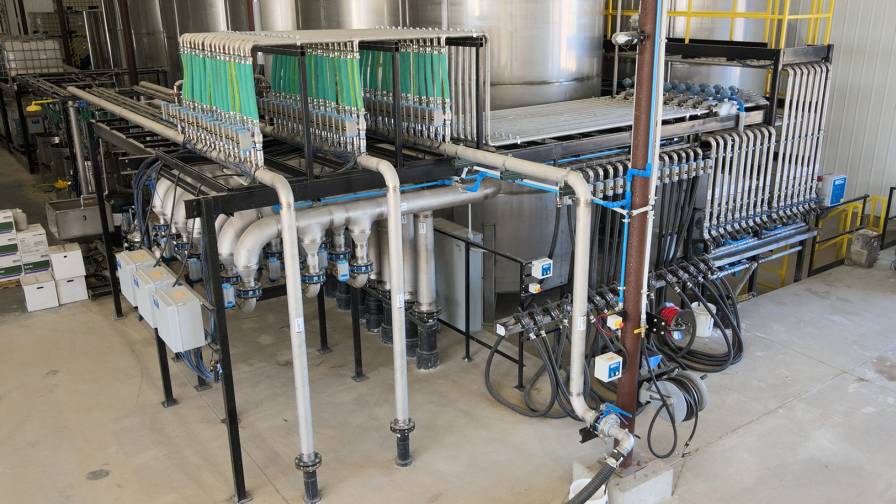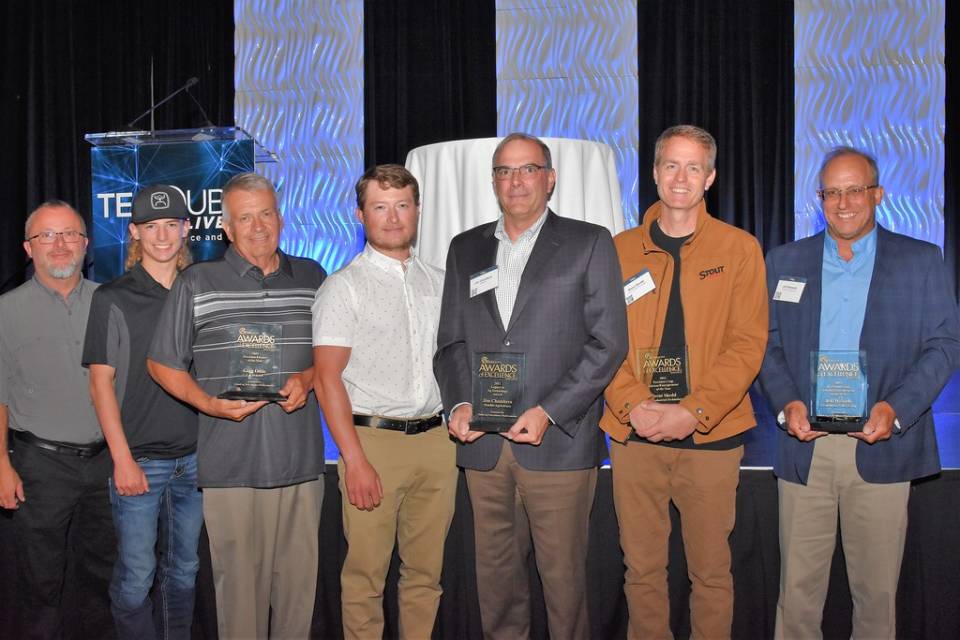Keeping it Simple: How CropLife America Is Sending a Clear Message for the Pesticide Industry
When Chris Novak took over as President of CropLife America in the fall of 2018, in interviews he could be heard reciting the renowned Chinese blessing-curse, “May you live in interesting times.” While there were plenty of challenges lying in wait for Novak back then, he’d have no sense as to how “interesting” the pesticide industry would become.
Ongoing trade disputes and negotiations were certainly not unexpected, and no one in agriculture gets caught napping on consolidation anymore. But the direct impact and halo effect of the global pandemic has been a true “out of left field” experience, and court battles over important chemistries have exposed the deepening distrust and misunderstanding of science, and government agencies, among the American people.

Chris Novak
Fortunately, Novak is not one to be overwhelmed. His leadership approach has responded to complexities of the market with a drive for simplicity and clarity, which he and his team endeavor to carry over into the organizations that CropLife America represents. He’s also tightened up the organization, shoring up expertise in needed areas such as trade and sustainability, and ensuring everyone’s role is optimized.
The strategic plan, developed last summer and fall, featured three overarching goals: Industry reputation; sustainability; and regulatory integrity. “They are of course broad themes but each of those has specific objectives we are looking to achieve,” says Novak. For example, industry reputation looks at the question of the credibility of the regulatory system and the soundness of the science.
Sustainability is focused on recognizing the work that member companies are doing to enhance and improve the environment, from creating and supporting habitats for pollinators and endangered species to the inherent benefits of pesticides toward reducing greenhouse emissions.
Finally, regulatory integrity has quickly emerged in recent years with the broader challenges that science has faced against the public’s growing skepticism of scientists and unawareness of the regulatory process for pesticide products.
Science Under Siege
The palpable skepticism of science and scientific perspective that’s come into stark relief through the process of dealing with the COVID-19 pandemic is only one aspect of this social reality. CropLife America, along with other associations and trade groups advocating for production agriculture, have fallen victim to the same cynicism and anger from individuals and organizations that use emotion and often non-reputable studies to support their efforts to eliminate pesticides.
To get to the heart of the public’s current perception of science, agriculture, and pesticides, the board of directors approved funding for a series of consumer focus groups. The results provide clearer view of the issues that are eroding public trust today.
“One element that came out of the focus groups was an intense lack of trust in the regulatory system,” says Novak. “The belief that the system was not representing the interests of the people, and that the EPA could not be trusted to do the job, is dominant.”
At the core of this lack of trust, he adds, is a lack of understanding of the regulatory review process as a whole. The public has virtually no comprehension of the investment in research, time, and scientific work that takes a product from discovery to commercialization, nor the EPA’s role as in independent scientific body in service to the public good.
“One of the messages that we want to convey is the value of the career scientists at EPA and the work they do, which is outside the political decision-making process,” says Novak.
The issue of trust and the sanctity of EPA’s jurisdiction over pesticide regulation has gone beyond the public and reached into the judicial system as well, another big area of concern for Novak and CropLife America. The Ninth Circuit Court, historically a reliable “friend” to the hardline anti-pesticide organizations, has been at the center of rulings challenging EPA.
It started with its chlorpyrifos ruling, essentially directing EPA to cancel registration of the active. The dicamba ruling went a step further by vacating the registration, an unprecedented move put the agency into uncharted territory. EPA pushed back enough to ensure farmers could get through the 2020 crop season, but the court’s maneuver was a huge wake-up call to the industry.
“Our friends at Cotton Inc. released a study demonstrating that the impact of losing dicamba would cost farmers $400 million,” says Novak. “It did not reach that level because the EPA was willing to step in, but the potential for significant damage to farmers was real.”
The subsequent ruling from the Ninth Circuit on Enlist Duo demonstrated much more deference to the agency. “The court acknowledged EPA’s evaluation of the science,” says Novak “They did find a question they felt EPA has not adequately addressed and asked them to go back and look at it. That is really a proper outcome. When you ignore the regulators like they did with dicamba, it places farmers in a difficult position, and they were not willing to acknowledge the financial consequences for farmers.”
As far as public communication, CropLife America is working on effective messaging, and harnessing the power of young employees at member companies and encouraging them to champion the benefits of pesticides in regard to the positive impact on health, safety, and the environment.
“As I was thinking about what my message is to pesticide company employees that may face tough questions at a family barbeque, there are a handful of points that can be communicated with a message that anyone can understand,” says Novak. “We reduce greenhouse gas emissions, improve water quality, and protect wildlife habitat through the proper implementation of pesticide products. We improve food safety. We protect homes and properties. And we protect people’s lives and health. So much of the negative is reported in the media … we must actively tell our positive story.”
Sustainability
Many CropLife America member companies are establishing and accelerating efforts that clearly demonstrate their individual approaches to sustainability. Each company has an important story to tell, and to better centralize those stories and messages Novak elevated Tristin Ralph from the CropLife America communications team to Manager of Sustainability.
“We’re pleased we have someone now working full time on this key aspect of our strategic plan,” says Novak. “He’s reaching out to companies to find out more about what members are doing and how we can be a part of sharing those stories.” From reducing carbon emissions to creating habitats for monarchs and pollinators, members are doing some tremendous work, he adds.
“Our first goal once we have messages in place is to reach out to political decision makers, but we know we also need to reach out to the food chain and key business leaders.”
Member efforts have largely coalesced around the United Nations’ 17 different sustainability goals, and CropLife America is keenly focused on those most directed at agriculture: reducing food waste, soil health, hunger, and nutrition.
Product stewardship was and continues to be an important aspect of the sustainability story as well. Applying pesticides in a more targeted manner, championing precision agriculture technology to make pest identification and treatment more accurate, and developing new chemistries that are more targeted and less persistent without losing efficacy are also key member areas of focus. Says Novak, “Sustainability will be a significant issue in 2021, and we have a great story to tell.”
This is indeed an “interesting” time for the pesticide industry, and Novak believes CropLife America is ready take on the big challenges ahead.






